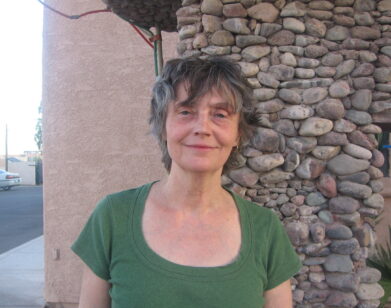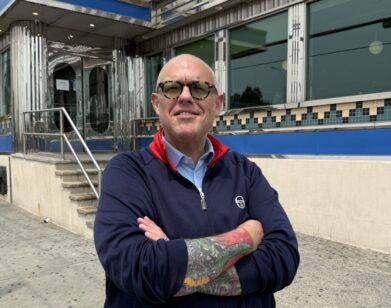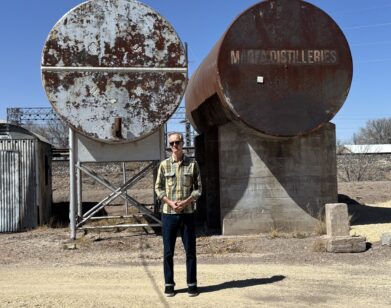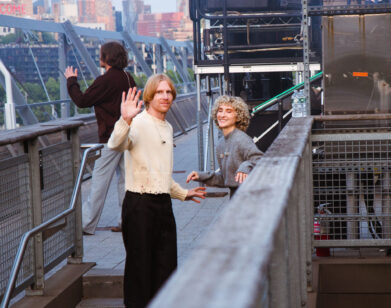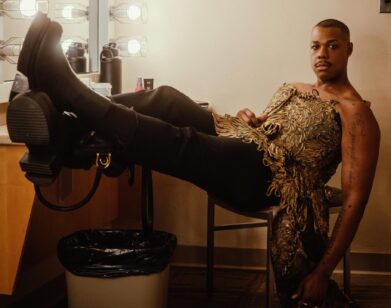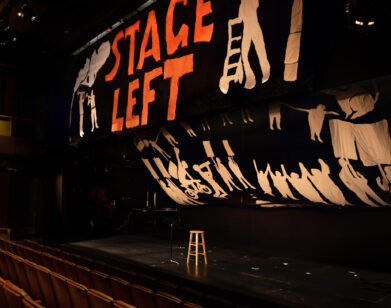René Steinke and What Lies Beneath
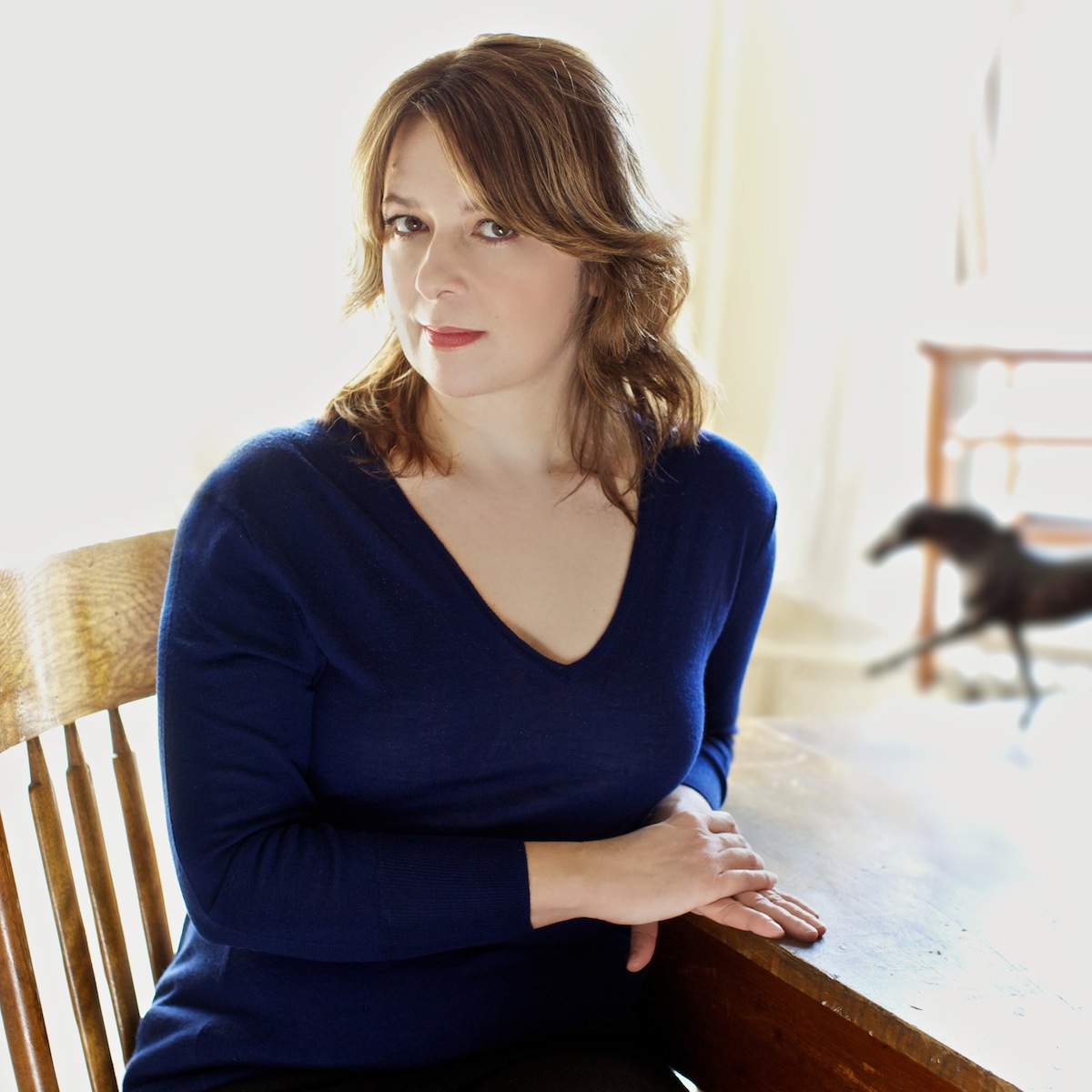
ABOVE: RENÉ STEINKE. PHOTO COURTESY OF MICHELLE OCAMPO
“I still love cowboy boots and country music,” jokes René Steinke, confirming her credibility in writing about the Texan hometown she left for New York two decades ago. In Friendswood (Riverhead), her third novel, Steinke weaves a gripping fictional tale based around a real-life environmental disaster that rocks her characters’ interwoven lives. The Brio Superfund is a 58-acre site that was abandoned along with a small nearby residential community in the 1980s after massive pollution from an oil refinery. Lives thrown into the maelstrom of events in her story include a grieving, revenge-seeking mother, an impressionable 15-year-old girl, a born-again, alcoholic realtor and his cocky, football-jock son, along with his rival, the team’s assistant trainer. In the novel, Steinke, the director of Fairleigh Dickinson University’s MFA program in creative writing, has accomplished a rare feat, melding an undeniably commercial page-turner with real literary clout.
Though written over several years, central events in the story—environmental pollution, a high-school rape, a homemade bomb—could be pulled from the front page of a current newspaper. Chatting from the leafy New Jersey campus where she teaches, Steinke explains why she was inspired to write about her hometown and why so many people have misconceptions about Texas.
JEFF VASISHTA: You’ve lived in New York longer than you have Texas, and your previous two novels weren’t set there; so what inspired you to write this?
RENÉ STEINKE: I always start with place I have some emotional connection to, even before I know the story. I like to start out with kind of a knot. Contradictions. There’s a lot of things about Texas that puzzle me. I went home to Friendswood visiting friends from high school who stayed in town. They told me about what happened in South Bend [the real residential community affected by the disaster]. It was an entire neighborhood that had to be demolished and abandoned because it was so near a field where a company had been dumping petroleum chemicals for decades. It had been declared the largest Superfund site since Love Canal. It was a major event. The New York Times, Time Magazine, news TV shows all reported on it. Once I heard this story through my friends’ voices, I knew that had to be the main story of the novel.
VASISHTA: Christianity plays a huge role in this, particularly through Hal, who is born-again but seems to tie his faith to his desire to make money. He’s quite a controversial figure in that respect.
STEINKE: Hal is a lot of people’s favorite character. I knew I wanted to explore the personality of someone who was a believer in what I call “Prosperity Christianity.” I was a little worried about alienating readers because of that. In the end, I came to really love Hal.
VASISHTA: Isn’t your dad a minister?
STEINKE: My dad was a minister, but a Lutheran minister, which was very left-leaning. Even when we lived there, we were in a pretty conservative town; but since we left, the right-wing Christian fundamentalist movement became much stronger. I knew all these people in New York were critical of it. I knew it’s not a faith I share. But I’m fascinated by the psychology there, because I know these people who have come to this way of getting by. Hal is one of those people, and so are Willa’s parents. Willa is caught in the middle. She’s rebelling against it more. Having grown up with the sense of the Rapture about to come informs the visions that she has.
VASISHTA: Willa’s character and her journey are extremely topical—college and high school sexual assault is hardly out of the news—but her scenes are some of the hardest to read.
STEINKE: I don’t think people write about it because it’s such an awful thing. It’s really complicated why these things happen. Obviously the victim is hurt the most, but it also hurts a lot of the guys who are there that didn’t do anything. What happens when they grow up and have daughters?
VASISHTA: You obviously did a huge amount of research for this, and you go into a lot of detail about pollution and blood cancer and also give a very detailed account of how to construct a homemade bomb. Were you afraid you’d get a knock on the door in the early hours of the morning?
STEINKE: [laughs] Yes, I was, a little! The bomb-making was unfortunately terrifyingly easy to research on the Internet. But it was good for me to know that for the character, too. A local newspaper called the South Belt Leader broke a lot of the news on the chemicals, and so I read their article and the New York Times article. There was a woman I interviewed who was the reporter [for the local paper], and she explained it to me in straight layman’s terms, which made [the pollution] easy for me to understand. Also, when I was done with the book, I had a toxicity specialist read it to make sure I didn’t put in anything embarrassing.
VASISHTA: You’re obviously a very talented writer, and some of your prose is stunning, but this is also a real page-turner. Not easy to pull off.
STEINKE: I didn’t set out to do that at all. I usually have a really hard time getting to the story. I knew I wanted to write this from several points of view. The thing I started with is now in the middle, and that’s the sexual assault at the party, and I wanted to look at how that one event rippled out into the community. At that point I had in mind The Bridge of San Luis Rey by Thornton Wilder and The Sweet Hereafter by Russell Banks, which are both books that start with a disaster and you see how it affects the community. When you have so many different themes, part of the challenge is how are they all going to get woven together. Language is the most important thing to me, but the older I get, I want to make sure there’s pleasure in the storytelling somehow.
VASISHTA: How do you think the reaction in Texas will be?
STEINKE: So far there’s a lot of hometown pride. On Facebook, people have been really enthusiastic, and some people have said, “I’m so glad you’re telling this story.” In the book, Lee fights to prevent building near the field; but in reality, they have built quite near the field, several sub-divisions. After I turned in the book I came across this heartbreaking blog from a woman whose son’s in remission from a rare leukemia, and she just found out that her house was built right next to this Brio Superfund site. She had no idea. She went to see two lawyers who said that she had a case but they’d be bankrupt if they pursued if because of all the businesses involved. The EPA has said the chemicals are buried low enough not to be an issue. I also got an e-mail from somebody who lived in the subdivision and was born with a birth defect, and her mother died of pancreatic cancer after having two other cancers. Her dad has had cancer.
VASISHTA: Are you prepared for your new role as an eco-warrior?
STEINKE: [laughs] I’m not really an activist in real life.
VASISHTA: There is a certain cliché about wealthy Texan men: the oilmen being very conservative and fake and doing whatever they need to for money. You can certainly see Hal becoming one of those if he gets rich. And Avery Taft, the developer, is one. Where do you think that cliché comes from?
STEINKE: When I first started writing this book, someone gave me a book called The Super Americans, which was about Texas millionaires. The basic idea is it’s just America but exaggerated. All the things you see in Texas are happening in America, but on a much larger scale. If you think of Wendy Davis doing that protest for women’s rights and you see how exaggerated that was— there’s truly a pioneering spirit in Texas somehow. It’s passed down through the culture. The woman in Texas are fascinating to me, and of course this is a broad generalization. They may be very sexualized, but they are also very strong. There’s not the demure Southern belle thing so much in Texas. If you look at the women that have gained power in Texas, they are strong, but super done-up—Anne Richards, Wendy Davis. Houston is the most diverse city in the country right now. The mayor is a lesbian. Of course there’s Bushes and Rick Perrys. There’s a lot of big business in Texas. It’s a fascinating place.
RENÉ STEINKE’S FRIENDSWOOD IS OUT TOMORROW, AUGUST 14.

